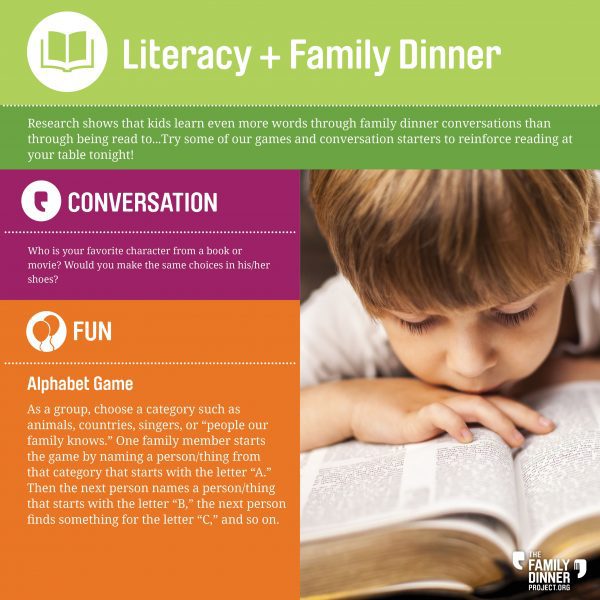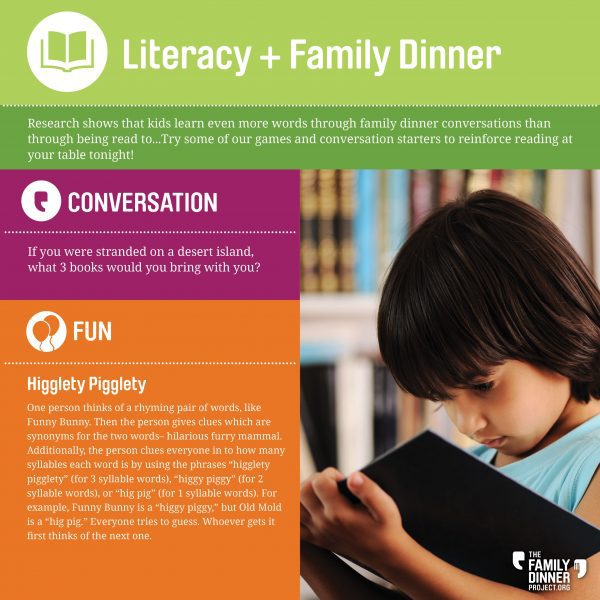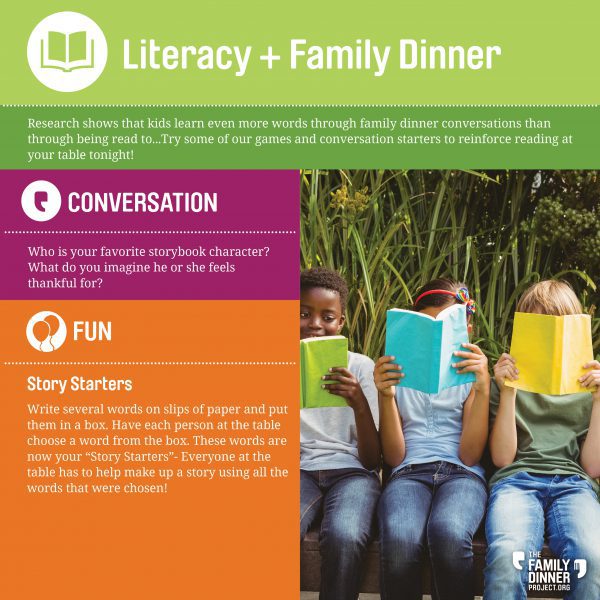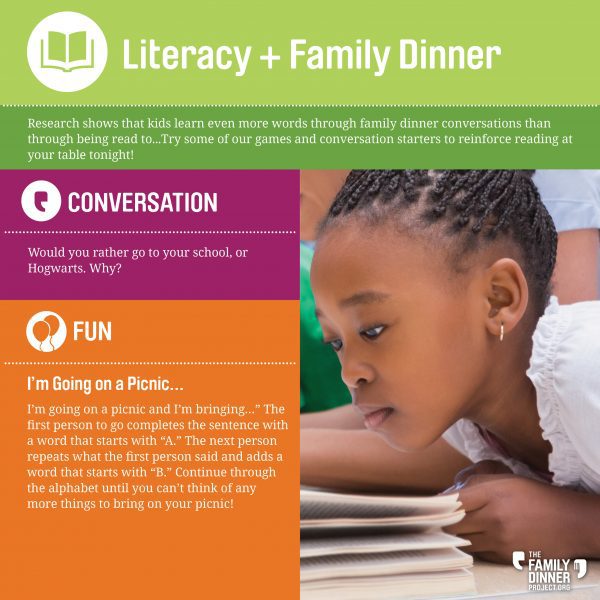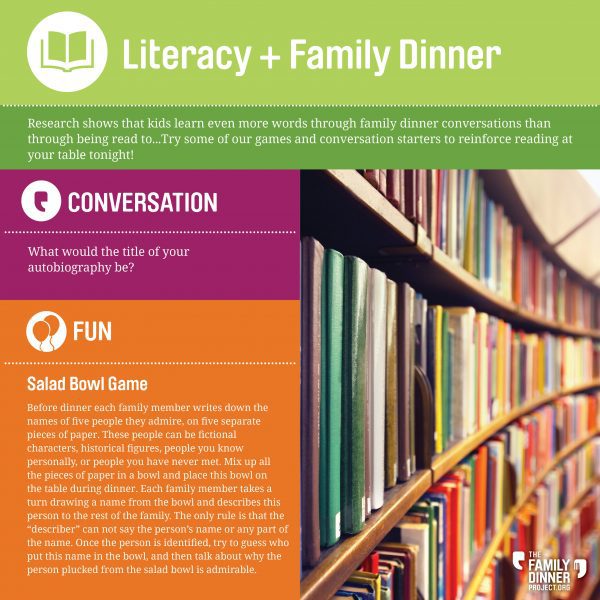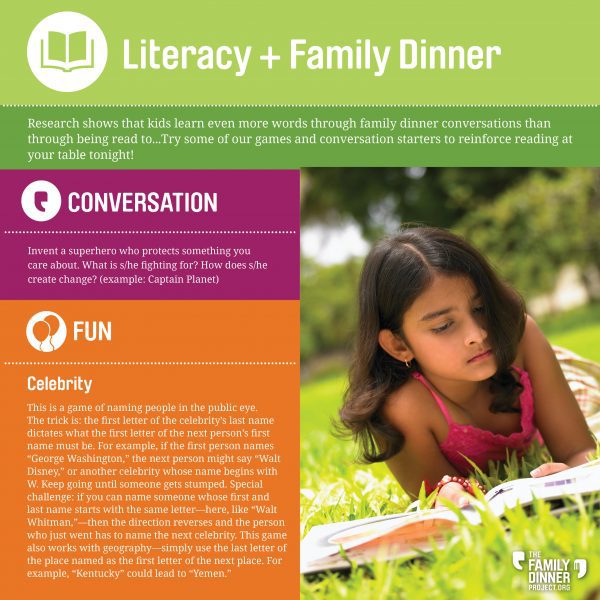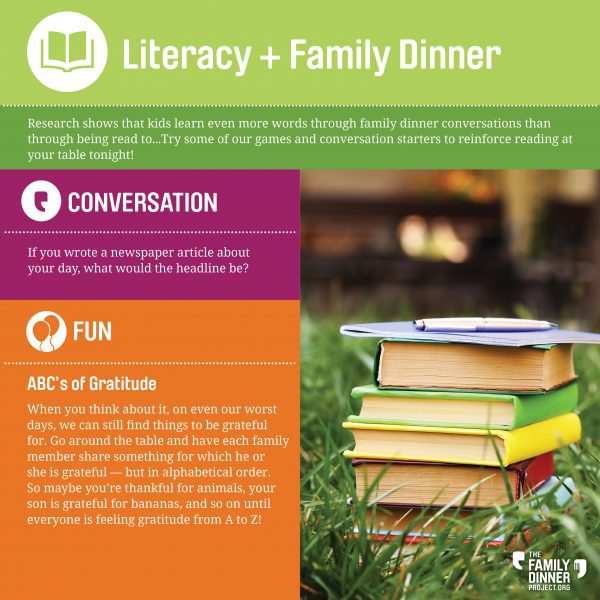The Family Dinner Project works to help families experience all the scientifically-backed benefits of shared meals. One of those benefits — a surprising one — is improved literacy skills for younger kids. Kids who eat dinner with their families have better skills in a few key areas for developing literacy than kids who don’t eat with their families. Below, we break down how family dinner improves literacy, and share how to use food, fun and conversation to make the most of the literacy connection at dinner.
Research Shows Family Dinner Boosts Vocabulary
Parents tend to think that reading aloud to their kids is the best way to build early reading skills and teach new words. We couldn’t agree more that reading aloud to your children is extremely valuable, for those reasons and many others! But in fact, studies show that young children can learn more new words through dinner conversation than they do from hearing stories read aloud.
Dinner is a great vocabulary builder because rare words — words that young kids don’t usually know — show up frequently in dinner conversation. As parents tell stories about their day, they often use more sophisticated language that kids can understand in the context of a story. Young children pick up ten times as many advanced words at dinner as they do when they are read to by an adult. And a bigger vocabulary can lead to stronger reading skills, because kids are more able to recognize and understand challenging words when they try to decode them for the first time.
The takeaway is: Read to your children early and often. But don’t forget the importance of providing a “word-rich” environment where family dinners offer a daily dose of brain-building conversation.
Research Shows Family Dinner Improves Storytelling Skills
Vocabulary isn’t the only important ingredient for reading success. Kindergarteners who can tell good stories with a beginning, middle and end grow into middle schoolers with better reading comprehension. Recent research even shows that kids who have strong narrative skills as preschoolers have higher reading scores ten years later.
Family dinner conversations often include storytelling to share the events of the day. That storytelling practice teaches kids to effectively organize and share their thoughts. And dinner also tends to include the kinds of give-and-take exchanges that make kids better storytellers. For example, parents often ask “how” and “why” in dinner conversation. They let children choose conversational topics. And they encourage more sharing at dinnertime than at other times of day. Kids can learn to tell more detailed stories when they have a captive audience encouraging them to add to the conversation.
Here’s How to Promote Literacy at Family Dinner
Clearly, family dinner is a great literacy builder all by itself. But you can tweak your mealtimes to give an added boost to budding readers. Dr. Anne Fishel shares some great ideas for book and dinner connections in this blog post. Or you can try these easy ideas for literacy-themed games and conversation starters!
